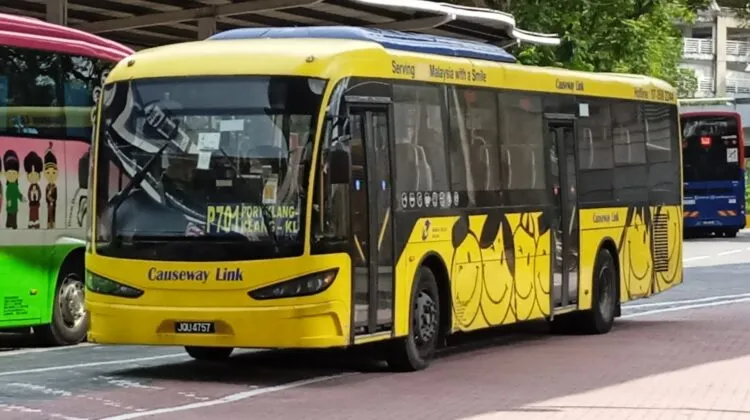Failure to appoint safety officers, lack of GPS, and poor monitoring were key violations in JPJ’s audit of Malaysia’s commercial vehicle operators.
Out of 133 Companies, Only 48 Passed – JPJ
Sixty-four per cent of commercial vehicle operators in Malaysia failed to meet safety requirements during the Special Operation on Safety Audit System Guidelines (Ops Khas JISA), according to the Road Transport Department (JPJ).
The JPJ Director General, Datuk Aedy Fadly Ramli said that a nationwide operation had been conducted to audit 133 commercial vehicle companies starting June 23, 2025. Of these, only 48 passed and the other 85 failed to comply with the JISA guidelines.
“The non-compliant companies comprised 43 lorry operators and 42 tour and express bus operators,” he said, as quoted by the Bernama News Agency.
Failure to appoint occupational safety and health officers, lack of GPS installation in all vehicles, and poor GPS monitoring practices were among the key violations found during the audit. Many companies also failed to clock drivers’ working hours, which must not exceed eight hours per day, and ensure a minimum 30-minute break every four hours of driving.
Aedy Fadly added that some companies had no safety action plans in place and did not display hotline numbers or the names of responsible officers on their vehicles for public complaints.
“The department will submit the list of non-compliant companies to the Land Public Transport Agency (APAD) for further action, including possible suspension or cancellation of operating licences,” he said.
The JPJ, according to Aedy Fadly, will not compromise on safety and will continue to enforce the law to enhance road safety and improve the quality of the national transport system.
New Seat Belt Rule
Starting July 1, 2025, all express buses, tour buses, and good vehicles must have seat belts installed in stages. The first phase will focus on enforcement for drivers and passengers of express and tour buses, in line with existing regulations requiring seat belts to be installed in buses registered after January 1, 2020.
“Previously, we emphasised advocacy, but beginning July 1, enforcement action will be taken against passengers who fail to wear seat belts, something that has not been implemented until now. For buses registered before 2020 that are not yet equipped with seat belts, JPJ will issue directives for installation within a timeframe to be determined under a Standard Operating Procedure (SOP) currently being developed through engagement sessions with industry stakeholders,” he said.
Non-compliance could result in RM300 fines for passengers and drivers. However, Aedy Fadly also warned that legal action could also be taken against bus companies for failing to ensure passenger safety. Since most buses are now fitted with CCTV cameras, the JPJ will use video footage as evidence.
Seat belt regulations will also be enforced on drivers and passengers of goods vehicles with a permissible maximum weight of up to 3,500 kilogrammes.








